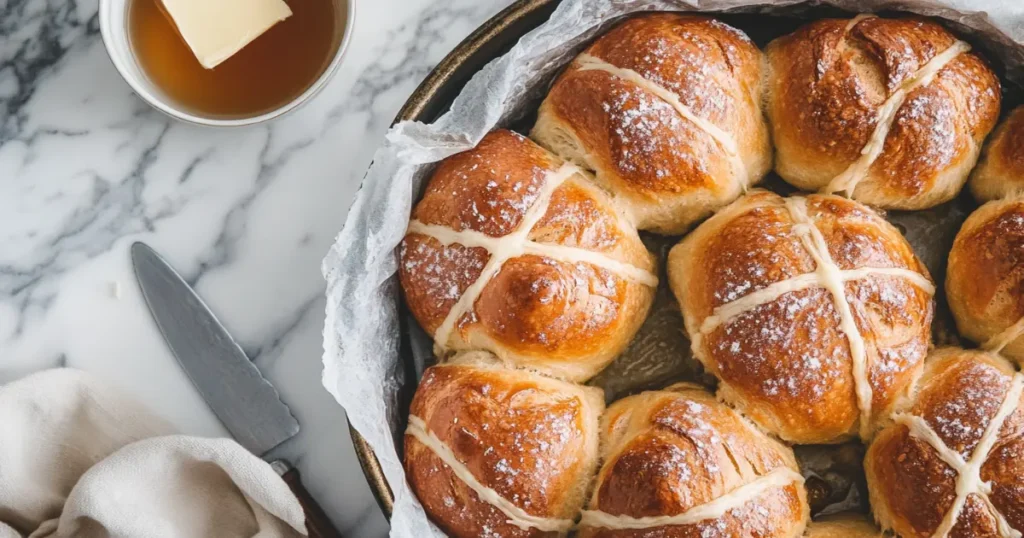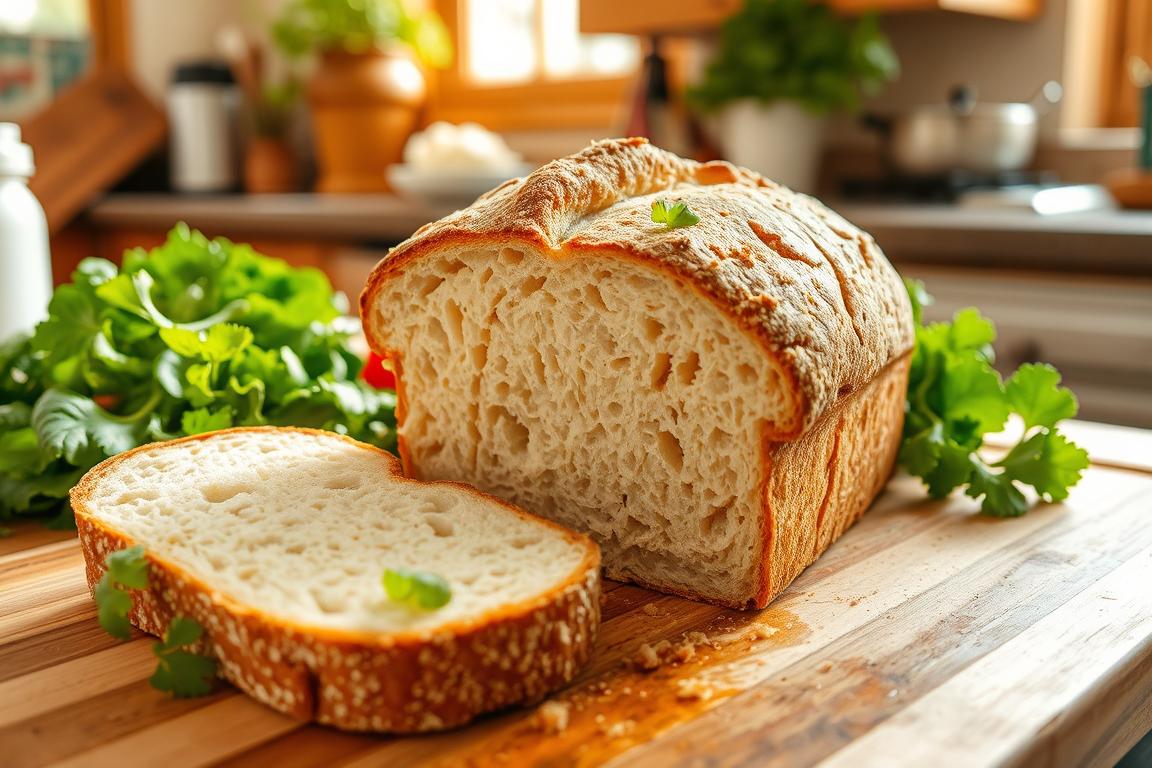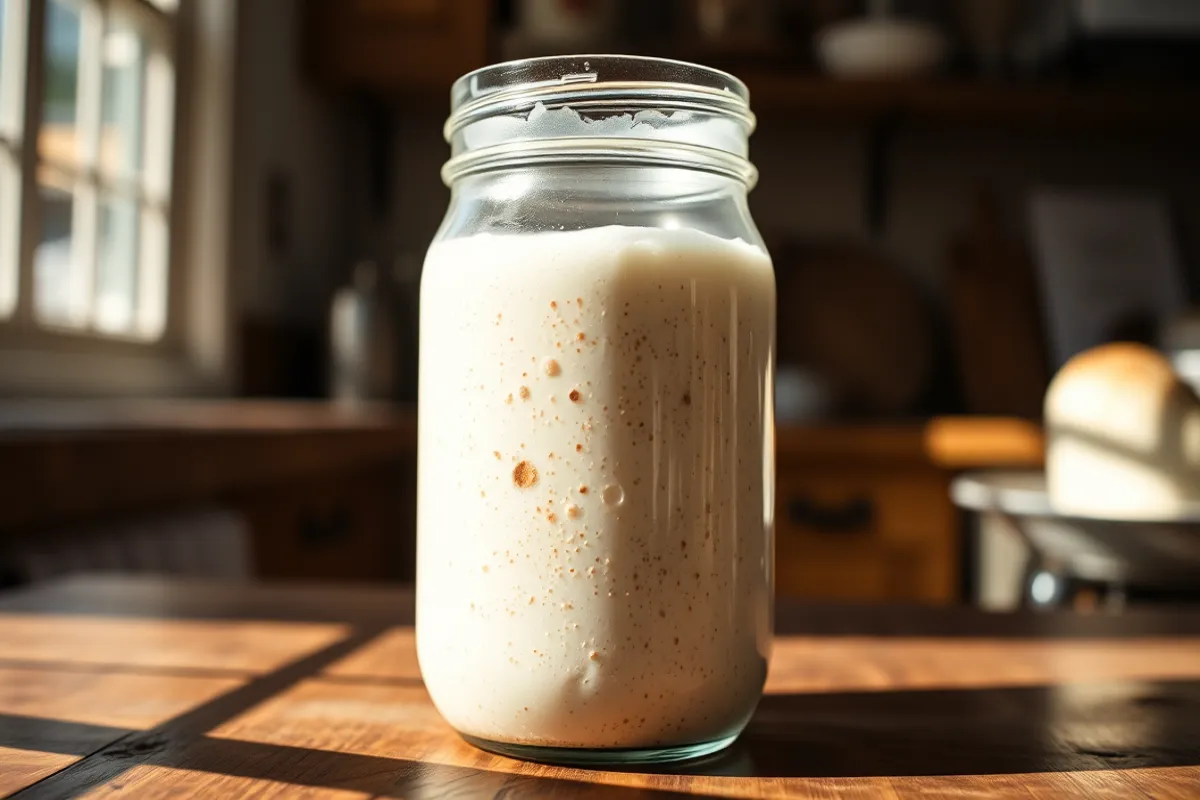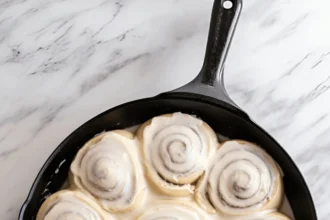Hot cross buns are an iconic Easter treat, traditionally enjoyed on Good Friday in many countries. This delightful bread is often spiced and filled with dried fruit, with a characteristic cross. In this guide, we’ll take you through making a vegan sourdough version of hot cross buns, combining the tangy flavor of sourdough with the warmth of spices while keeping it entirely plant-based. Whether you’re looking for a healthier option or want to cater to dietary needs, these buns offer a unique twist on the classic recipe.
What Makes Vegan Sourdough Hot Cross Buns Special?
Vegan sourdough hot cross buns stand out for a couple of reasons:
- Sourdough fermentation: Sourdough is naturally fermented, making it easier to digest than yeasted bread. The long fermentation process allows the phytic acid in the grains to break down, which aids in mineral absorption and reduces bloating for many people.
- Vegan Ingredients: These buns use plant-based alternatives instead of traditional dairy and eggs. This makes them suitable for those with dietary restrictions and adds a modern, ethical twist to a centuries-old tradition.
By making these buns at home, you can control the ingredients and ensure that no artificial preservatives or unnecessary additives are included. Plus, the homemade touch always makes these buns extra special!
How to Make Vegan Sourdough Hot Cross Buns
Yields: 12 buns
Ingredients
Yudane Dough:
- 90g bread flour (preferably high-gluten flour)
- 90g boiling water
Sweet Stiff Starter:
- 80g active sourdough starter (100% hydration), at peak
- 240g bread flour (preferably high-gluten flour)
- 100g water
- 40g organic brown sugar
Main Dough:
- 80g bread flour (preferably high-gluten flour)
- All stiff starters (from above)
- All yudane dough (from above)
- 20g – 25g brown sugar (organic recommended)
- 1 1/2 tsp (8g) salt
- 65g cold water/almond milk/soy milk (reserve 10g and add if dough feels too dry)
- 35g extra virgin olive oil or vegetable oil (can be a mix of EV olive oil and EV coconut oil)
- 1 1/4 tsp cinnamon powder
- 1 1/4 tsp mixed spice OR 1/4 tsp allspice + 1/2 tsp nutmeg
- Zest of 2 oranges
- 85g raisins, rinsed with hot water and drained
Flour Paste for the Cross:
- 40g plain flour
- 40g water
- 1 tsp vegetable oil
Sugar Glaze:
- 1 tbsp brown sugar or orange marmalade
- 1 tbsp boiling water
Utensils:
- Baking pan (12.5 x 7.75 inches or 30 x 20 cm), lined with parchment paper OR
- 9-inch square pan (arrange buns in a 4×4 pattern)
- Piping bag
- No. 6 round nozzle (optional)
Step-by-Step Instructions for Making Vegan Sourdough Hot Cross Buns
1. Prepare the Yudane Dough
- Add bread flour to a bowl, pour boiling water over it, and mix well with a spatula until no dry flour remains.
- Cover with cling film and refrigerate for at least 4 hours or overnight.
- Use directly from the fridge.
2. Make the Sweet Stiff Starter
- Mix the sourdough starter with water and brown sugar.
- Stir in the bread flour and knead into a dough.
- Cover and let ferment until tripled in volume (4-6 hours at room temperature of 28-30°C or overnight at cooler temperatures).
- The starter should have a smooth, domed surface and should not collapse.
3. Mix the Main Dough
- Place all ingredients (except oil and raisins), including the stiff starter and yudane dough, into a stand mixer bowl.
- Tear the stiff starter and yudane dough into small pieces before mixing.
- Use a paddle attachment to mix for 2 minutes until incorporated.
- Switch to a dough hook and knead for 3 minutes until the dough starts coming together.
- Gradually add oil in 2-3 batches, kneading for 5-6 minutes to fully incorporate it.
- Continue kneading for another 7-8 minutes until the dough becomes smooth and elastic.
- Fold in the raisins and round the dough into a ball.
4. First Proofing (Bulk Fermentation)
- Cover the dough and let it rest for 45-60 minutes at room temperature (around 29°C).
- The dough should rise about 50% but does not need to double.
5. Shaping the Buns
- Transfer the dough to a floured surface and divide into 12 equal portions (~78g each).
- Roll each piece into a smooth ball.
- Arrange the buns on the prepared baking pan (3×4 arrangement for 12 buns).
6. Final Proofing
- Cover and let the buns rise in a warm place until doubled in size (~2 hours at 30°C).
- The proofing time will vary depending on room temperature and starter activity.
7. Prepare the Flour Paste for the Cross
- Whisk flour, water, and oil until smooth and pipeable.
- Transfer to a piping bag and snip off the tip.
8. Baking
- Preheat the oven to 190°C – 210°C (top & bottom heat) or 170°C – 190°C (fan-forced).
- Pipe a cross over each bun using the prepared flour paste.
- Bake for 20-25 minutes until golden brown.
- Check doneness around 20 minutes; overbaking may dry out the buns.
9. Apply Sugar Glaze
- Mix brown sugar or marmalade with boiling water until dissolved.
- Brush the hot buns with the glaze for a glossy finish.
10. Cooling and Storage
- Store in an airtight container for up to 3 days or freeze for longer storage.
- Allow buns to cool on a wire rack.

How to Make Vegan Sourdough Hot Cross Buns Ahead of Time
Preparing the Dough the Night Before
Making the dough a day ahead allows for the flavors to meld and develop fully. Simply leave the dough to rise in the refrigerator overnight after the first proofing, then continue with shaping and the second rise the next morning.
Freezing and Storing Buns
These buns freeze well, so if you’re preparing ahead for a special occasion:
- Let the buns cool completely.
- Store them in an airtight container and freeze for up to 3 months.
- To reheat, thaw at room temperature, then warm in the oven for 5 minutes to restore their freshness.
Vegan Ingredient Substitutions for Sourdough Hot Cross Buns
Best Plant-Based Milk Substitutes
While oat milk provides the creamiest texture, soy or almond milk also works. Each type adds its subtle flavor, so feel free to experiment.
Replacing Eggs in Traditional Recipes
Aquafaba, the liquid from canned chickpeas, is a popular substitute for eggs in vegan baking. It acts as a binder and helps add moisture, ensuring your buns are tender and fluffy.
Troubleshooting Common Issues
Why Didn’t My Sourdough Buns Rise Properly?
- Weak Starter: If your starter isn’t strong enough, it won’t provide the necessary lift. Make sure your starter is active and bubbly before use.
- Underproofing: If the buns haven’t risen enough, give them more time. Temperature plays a key role—too cool, and the rise will be sluggish.
How to Fix Overly Dense Buns
- A low hydration level in the dough can lead to dense buns. Ensure the dough is wet enough but not too sticky.
- Over-kneading can also cause the dough to become tough. Use the stretch and fold method to prevent this.
Preventing Dry Buns
To keep the buns moist, avoid over-baking and brush with a glaze when they come out of the oven.
FAQs About Vegan Hot Cross Buns
Which Hot Cross Buns are Vegan?
Many brands offer vegan hot cross buns, including options from popular supermarkets like Tesco, Sainsbury’s, and M&S. Be sure to check the label for ingredients, avoiding those with dairy or eggs.
Why Are Hot Cross Buns Not Vegan?
Traditional hot cross buns contain dairy (milk or butter) and eggs, which are animal-based products. These ingredients enrich the dough, making it unsuitable for vegans.
Is a Sourdough Bun Vegan?
Yes, most sourdough buns can be made vegan. Sourdough is typically made from flour, water, and a sourdough starter, and it is all vegan-friendly. However, some recipes may include dairy or honey, so always check.
Are Co-op Hot Cross Buns Vegan?
Yes, Co-op offers a vegan version of hot cross buns. They specifically label their vegan-friendly products, making it easier for shoppers to identify.
Final Thoughts: Mastering Vegan Sourdough Hot Cross Buns
With patience and attention to detail, you can master the art of making vegan sourdough hot cross buns at home. These buns offer a healthier, more ethical version of the traditional recipe, but the sourdough also adds a depth of flavor that’s hard to resist.
Whether you’re making them for a holiday or just because these buns will surely be a hit! Try adding your favorite ingredients or experimenting with different flour blends to make the recipe your own. Happy baking!

Vegan Sourdough Hot Cross Buns
Ingredients
Method
- 1. Prepare the Yudane Dough
- Mix the bread flour and boiling water until fully incorporated.
- Cover and refrigerate for at least 4 hours or overnight. Use straight from the fridge.
- 2. Make the Sweet Stiff Starter
- Mix the sourdough starter with water and brown sugar. Stir in the flour and knead into a firm dough.
- Cover and let it ferment until tripled in size (about 4-6 hours at 28-30°C or overnight in a cooler space).
- The starter should have a smooth, domed surface and not collapse.
- 3. Mix the Main Dough
- In a stand mixer, combine all ingredients except the oil and raisins, including the yudane and stiff starter.
- Tear the stiff starter and yudane dough into small pieces before mixing.
- Mix with a paddle attachment for 2 minutes, then switch to a dough hook and knead for 3 minutes.
- Gradually add oil in 2-3 batches, kneading for 5-6 more minutes until fully incorporated.
- Knead another 7-8 minutes until smooth and elastic.
- Fold in the raisins and shape the dough into a ball.
- 4. First Proofing (Bulk Fermentation)
- Cover and rest at room temperature (~29°C) for 45-60 minutes until the dough rises about 50% (does not need to double).
- 5. Shape the Buns
- Transfer the dough to a floured surface and divide into 12 equal portions (~78g each).
- Roll each into a smooth ball and arrange on a lined 9-inch square pan (4×4) or 12.5 x 7.75-inch pan (3×4).
- 6. Second Proofing
- Cover and proof in a warm place (~30°C) until doubled in size (about 2 hours).
- 7. Prepare the Flour Paste for the Cross
- Mix flour, water, and oil until smooth. Transfer to a piping bag and snip the tip.
- 8. Bake the Buns
- Preheat oven to 190°C – 210°C (top & bottom heat) or 170°C – 190°C (fan-forced).
- Pipe a cross over each bun with the flour paste.
- Bake for 20-25 minutes, checking at 20 minutes to prevent drying out.
- 9. Apply Sugar Glaze
- Dissolve brown sugar or marmalade in boiling water and brush over the warm buns for a glossy finish.
- 10. Cool & Store
- Cool on a wire rack before serving.
- Store in an airtight container for up to 3 days, or freeze for longer storage.
Notes
- Patience is key! Allow the sourdough starter and yudane dough to develop flavor overnight.
- Want a softer texture? Swap part of the bread flour with all-purpose flour.
- For extra shine, brush with an apricot or maple syrup glaze instead.








Hi. The recipe says to add warm water but doesn’t include it in the ingredients list. Could you add the quantity?
Many thanks
We’ve refined this recipe through several test batches, correcting various errors along the way. We’ve also identified the best ingredients and instructions for perfect Vegan Sourdough Hot Cross Buns. Please take another look